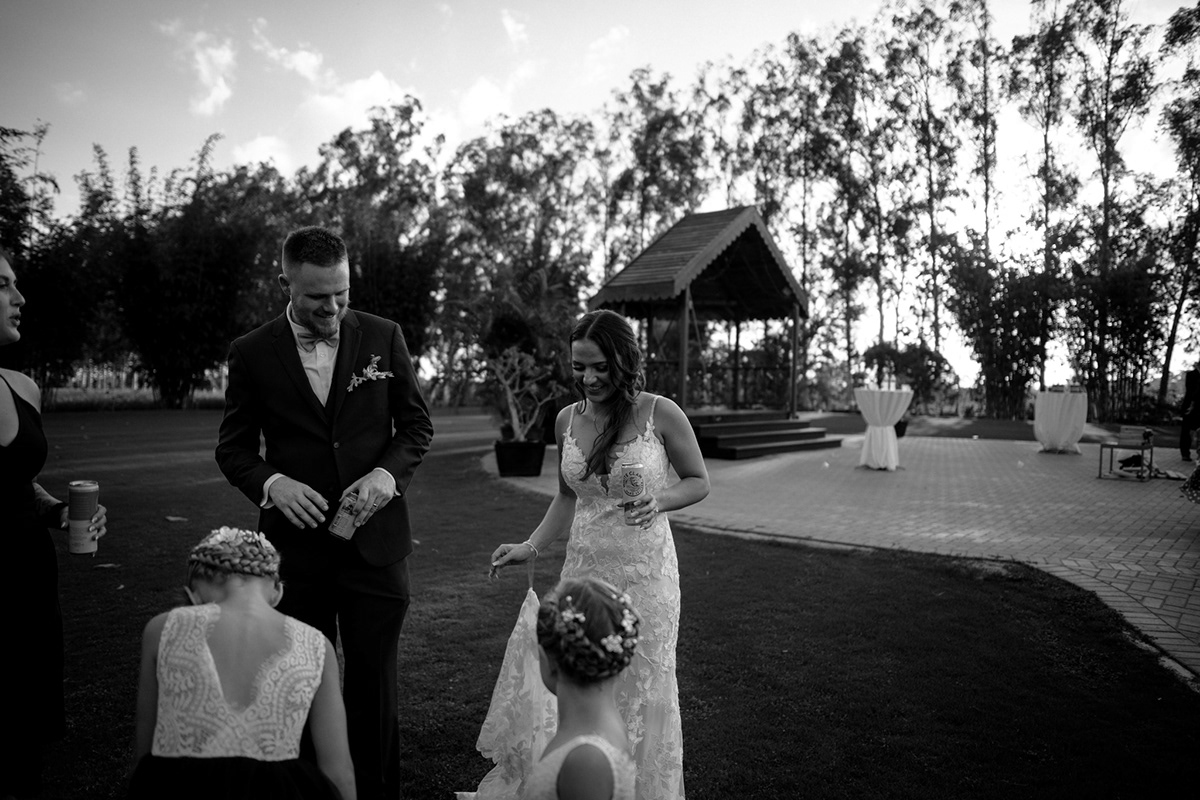
Eloping has evolved from being a secretive, spur-of-the-moment decision to a thoughtfully planned, intimate celebration of love. Whether you’re escaping the stress of a traditional wedding or simply want a private, meaningful experience, an elopement ceremony offers a beautiful alternative. This guide will help you navigate the process of planning an unforgettable elopement that reflects your unique love story.
What is an Elopement Ceremony?
Traditionally, eloping meant running away to get married without the knowledge or approval of family and friends. Today, however, the term “elopement” has taken on a new meaning. It refers to a small, often spontaneous wedding ceremony that is typically just the couple, a celebrant, and sometimes a few close witnesses or friends.
Elopements are more intimate, less expensive, and can be just as romantic as a large traditional wedding. They allow couples to focus on what truly matters—their commitment to each other—without the distractions of a big event.
Reasons to Choose an Elopement
- Intimacy and Privacy: An elopement allows you to focus entirely on your partner without the pressures of a large audience. This makes the ceremony deeply personal and meaningful.
- Flexibility: With fewer logistical concerns, you can choose a location that is truly special to you—whether it’s a mountaintop, a beach at sunrise, or a historic courthouse.
- Cost-Effective: Elopements are typically much less expensive than traditional weddings, allowing you to allocate your budget to other priorities, such as a honeymoon or starting a new life together.
- Less Stress: The absence of guest lists, seating charts, and elaborate decorations reduces the stress associated with planning a big event.
- Adventure: For those with a sense of adventure, an elopement can be combined with travel, creating unforgettable memories in a stunning location.
How to Plan an Elopement Ceremony
1. Choose a Location
The first step in planning your elopement is deciding where you want to exchange your vows. Consider a place that holds special significance for both of you. This could be a city where you first met, a favorite vacation spot, or even a location you’ve always dreamed of visiting.
Some popular elopement destinations include:
- National Parks: Yosemite, Zion, or the Grand Canyon offer breathtaking backdrops.
- Beaches: Whether it’s the pristine sands of Hawaii or the rugged coastline of Maine, beaches provide a serene setting.
- Urban Settings: City hall weddings in places like San Francisco, New York, or Paris have a certain charm and elegance.
- Mountaintops: If you’re adventurous, consider a mountaintop elopement with panoramic views.
2. Hire an Officiant
In most places, you’ll need an officiant to legally marry you. Research local laws to determine what type of officiant is required. You might opt for a professional officiant, a religious leader, or even a close friend who has been ordained for the occasion. Some couples also choose to have a symbolic ceremony in addition to the legal one, especially if they are marrying abroad.
3. Plan Your Vows
Your vows are the heart of your elopement ceremony. Since the setting is more intimate, you have the freedom to make your vows as personal and heartfelt as you wish. You can write your own vows, recite traditional ones, or even combine the two. The key is to express your love and commitment in a way that feels authentic to you.
4. Consider a Photographer
While elopements are often private affairs, hiring a photographer to capture the moment is a wonderful way to preserve the memories. Look for a photographer who specializes in elopements and has experience shooting in your chosen location. You’ll treasure these photos for years to come.
5. Dress the Part
Just because you’re eloping doesn’t mean you have to forgo the wedding attire. Whether you choose a traditional wedding dress and suit, or something more casual, the key is to wear what makes you feel confident and beautiful. Consider the location when choosing your outfit—a flowing dress might be perfect for a beach, while a more structured gown might suit an urban setting.
6. Incorporate Personal Touches
An elopement doesn’t have to be devoid of special touches. Consider incorporating elements that are meaningful to you as a couple:
- Music: Create a playlist of your favorite songs to play during the ceremony.
- Letters: Write letters to each other to read before the ceremony begins.
- Keepsakes: Bring along a small item, like a piece of jewelry or a family heirloom, to incorporate into the ceremony.
- Decor: Even in a natural setting, a few simple decorations, like a bouquet or an arch, can add to the ambiance.
7. Plan for After the Ceremony
After the ceremony, consider what you’d like to do to celebrate. You might enjoy a romantic dinner, a private picnic, or even an adventurous activity like hiking or sailing. Some couples also choose to have a small celebration with close family and friends after they return home.
8. Legal Considerations
Make sure you understand the legal requirements for getting married in your chosen location. This includes obtaining a marriage license and, if necessary, scheduling a court appointment. If you’re marrying abroad, research the legal requirements of that country and what you’ll need to do to make your marriage official when you return home.
The Emotional Side of Eloping
Eloping can be an incredibly emotional experience. Without the distractions of a large wedding, you can focus entirely on each other. Many couples find that the intimacy of an elopement allows them to be more present in the moment and more connected to their partner.
However, eloping can also bring up feelings of guilt or sadness, especially if you’re not including family and friends. It’s important to communicate openly with each other about your feelings and to make sure you’re both comfortable with your decision.
Announcing Your Elopement
Once you’ve tied the knot, you’ll need to decide how and when to share the news with others. Some couples choose to keep their elopement a secret until after the ceremony, while others inform close family and friends beforehand. You might also choose to have a small gathering or reception to celebrate with loved ones at a later date.
Conclusion
Eloping is a beautiful way to start your married life together. Whether you’re drawn to the simplicity, the intimacy, or the adventure of an elopement, this type of ceremony allows you to focus on what truly matters—your love for each other. By planning carefully and incorporating personal touches, your elopement can be a day that you’ll cherish forever.









